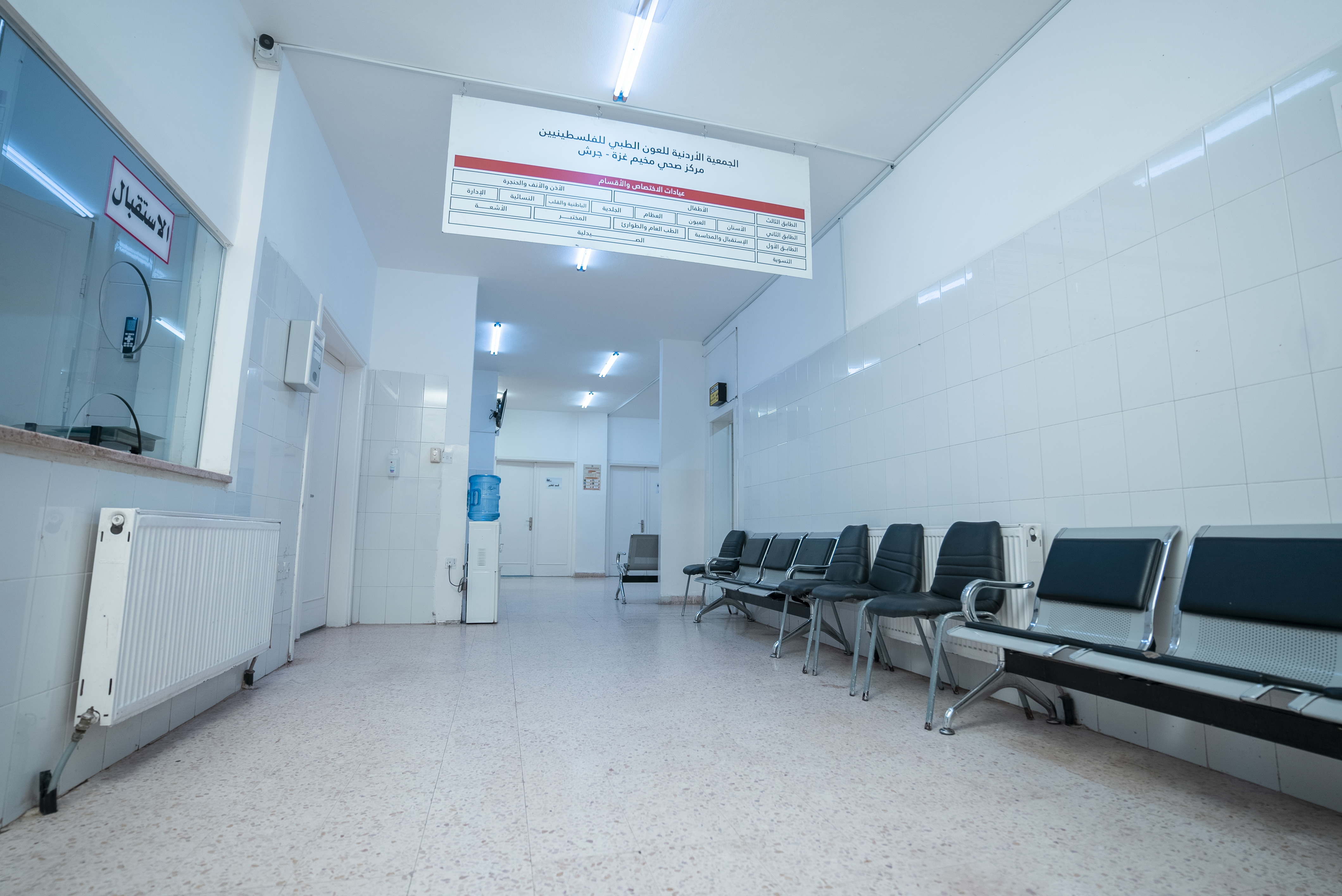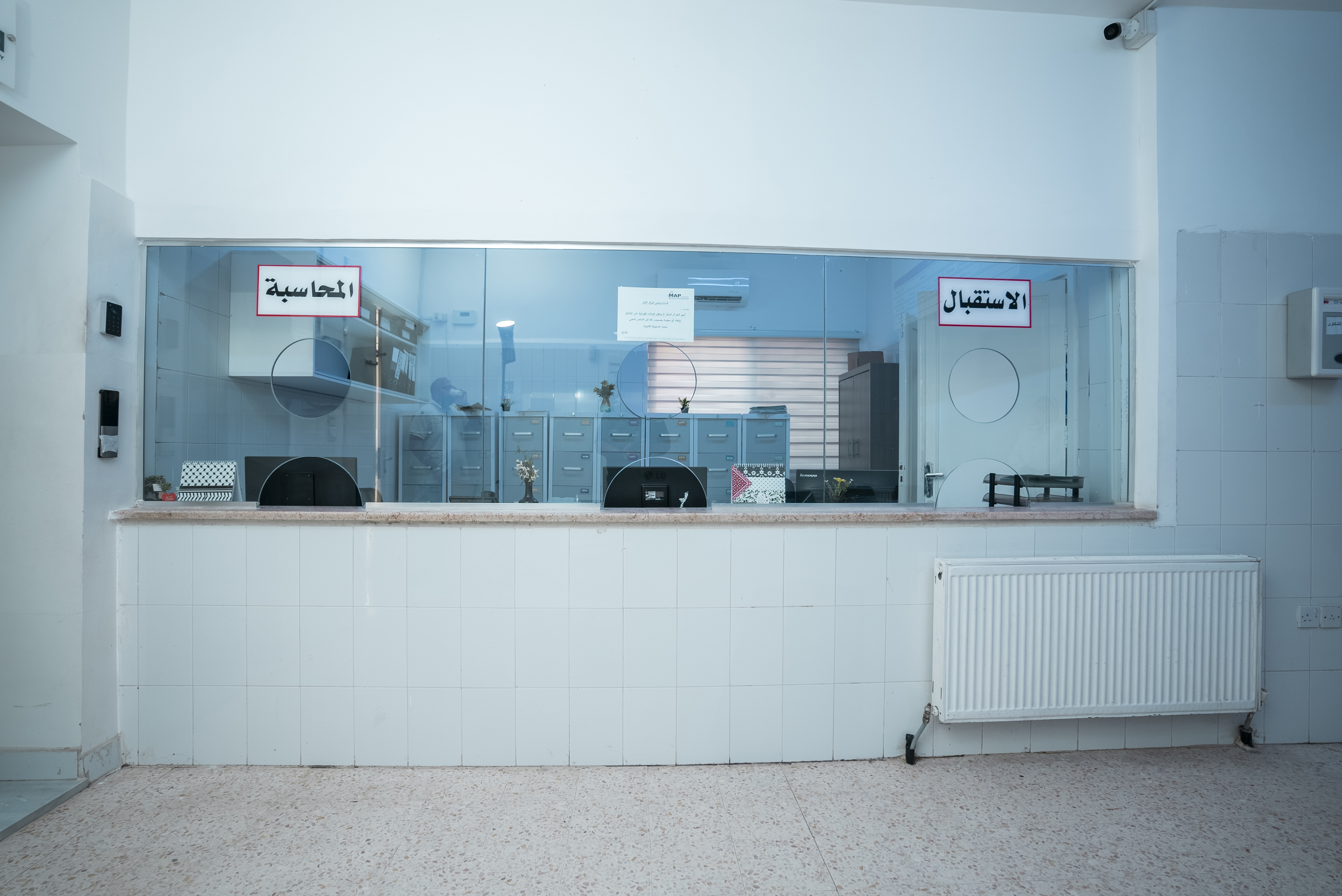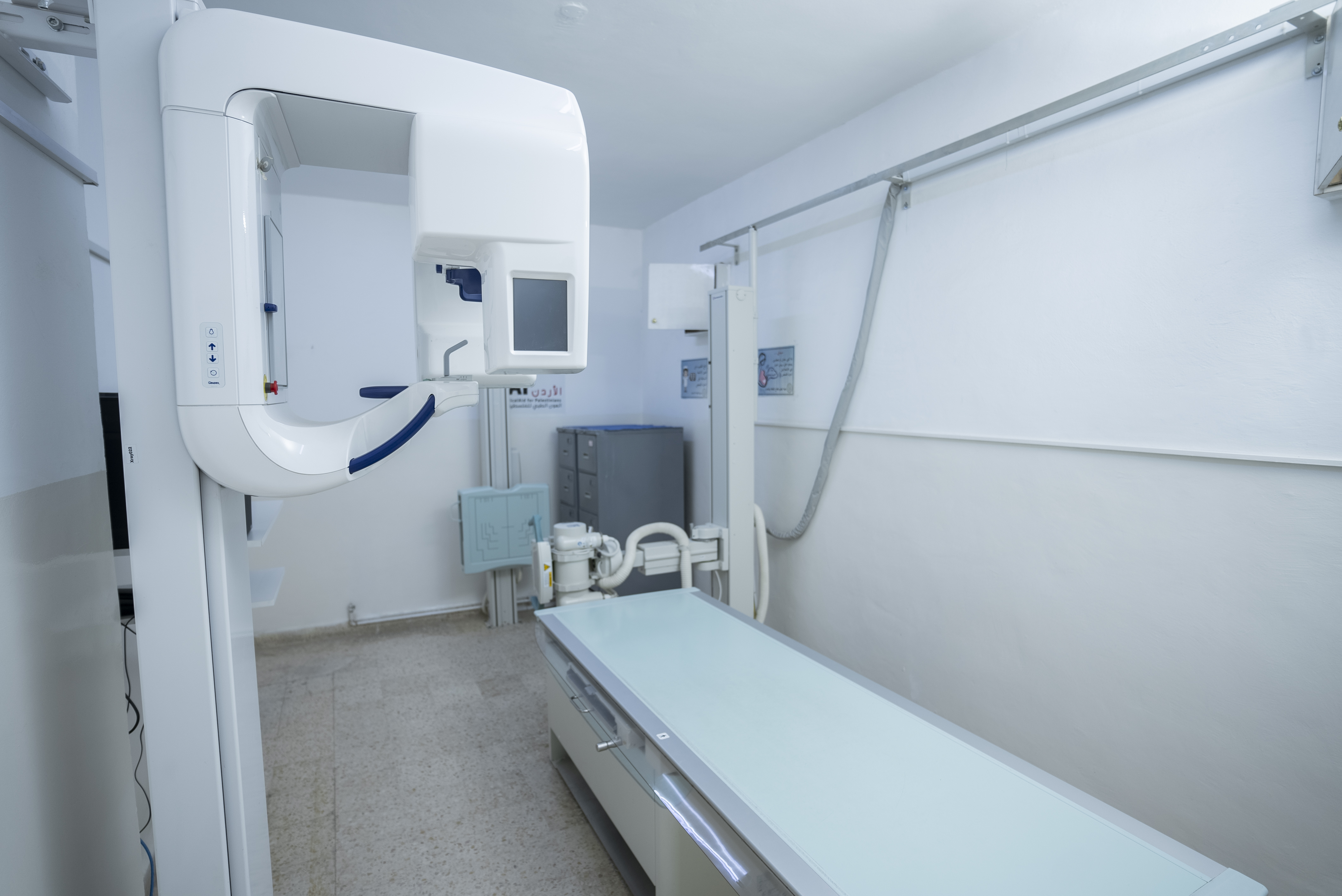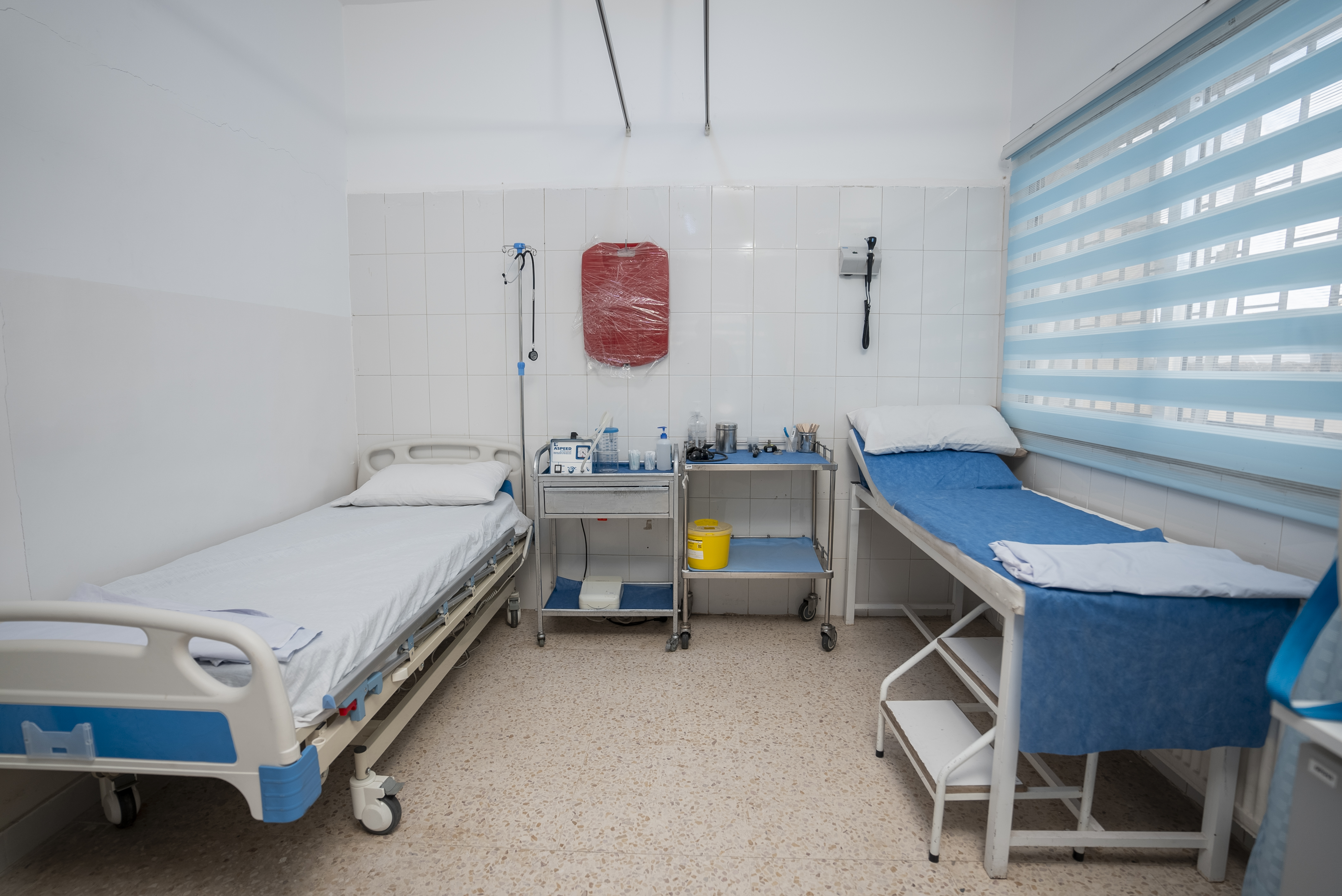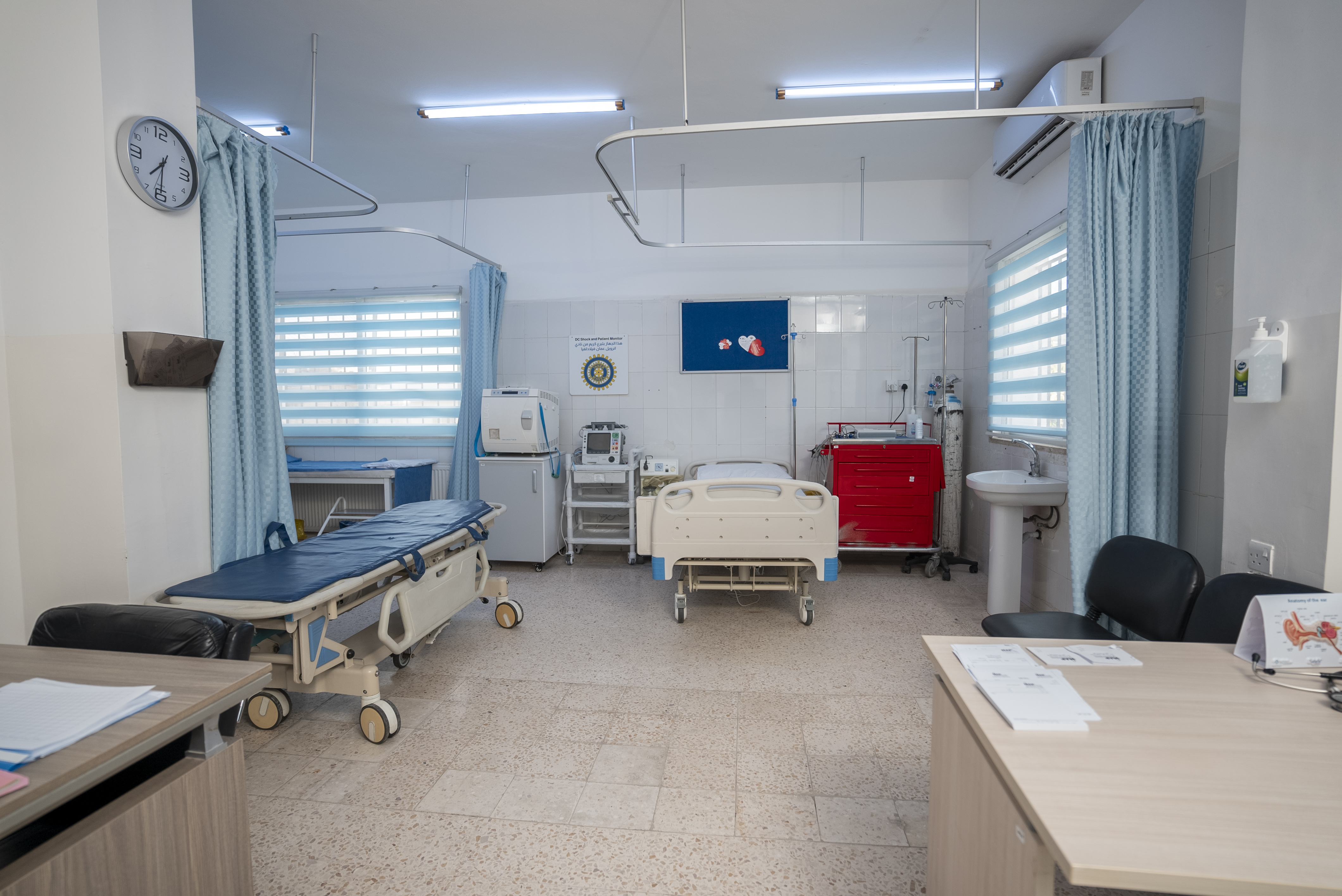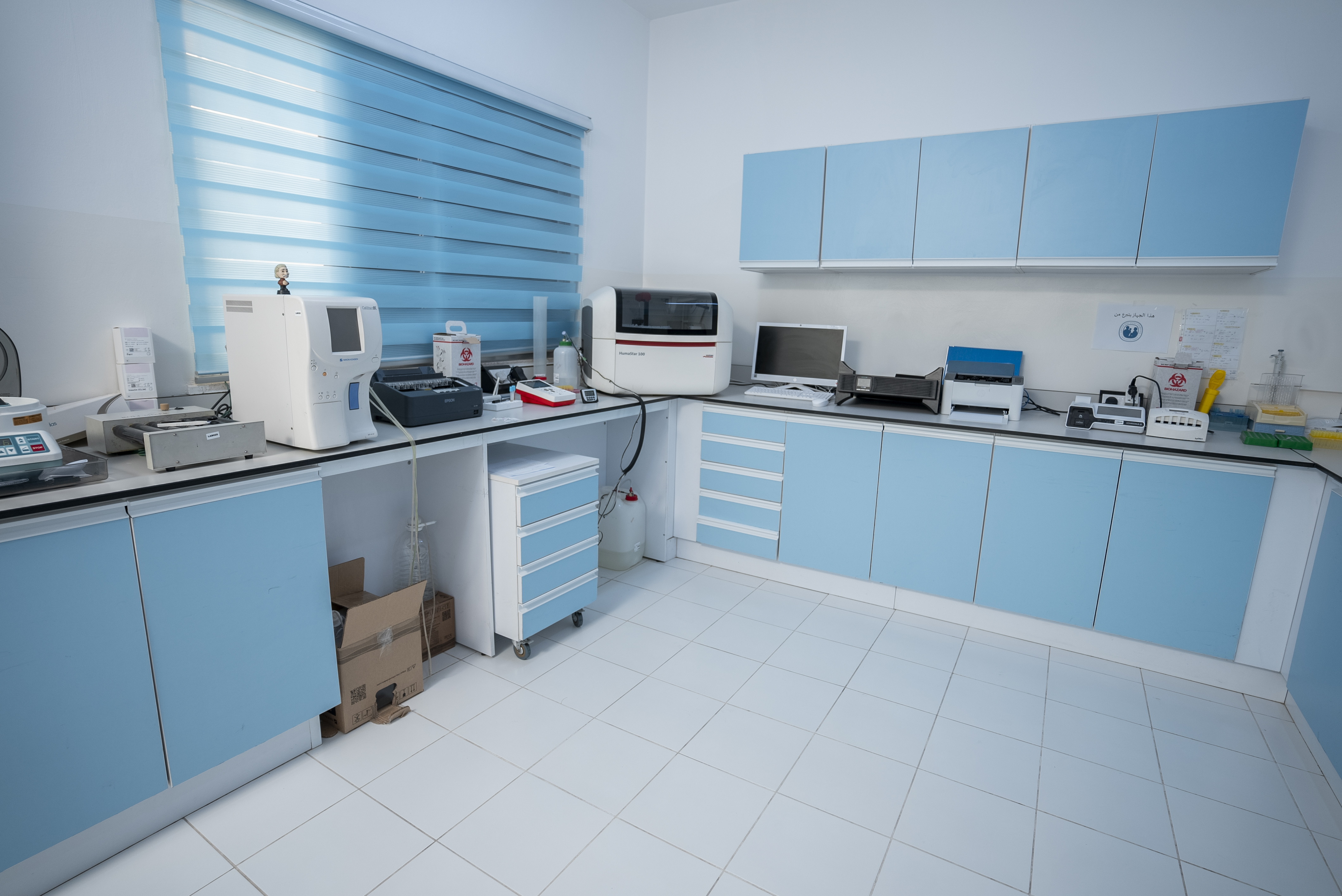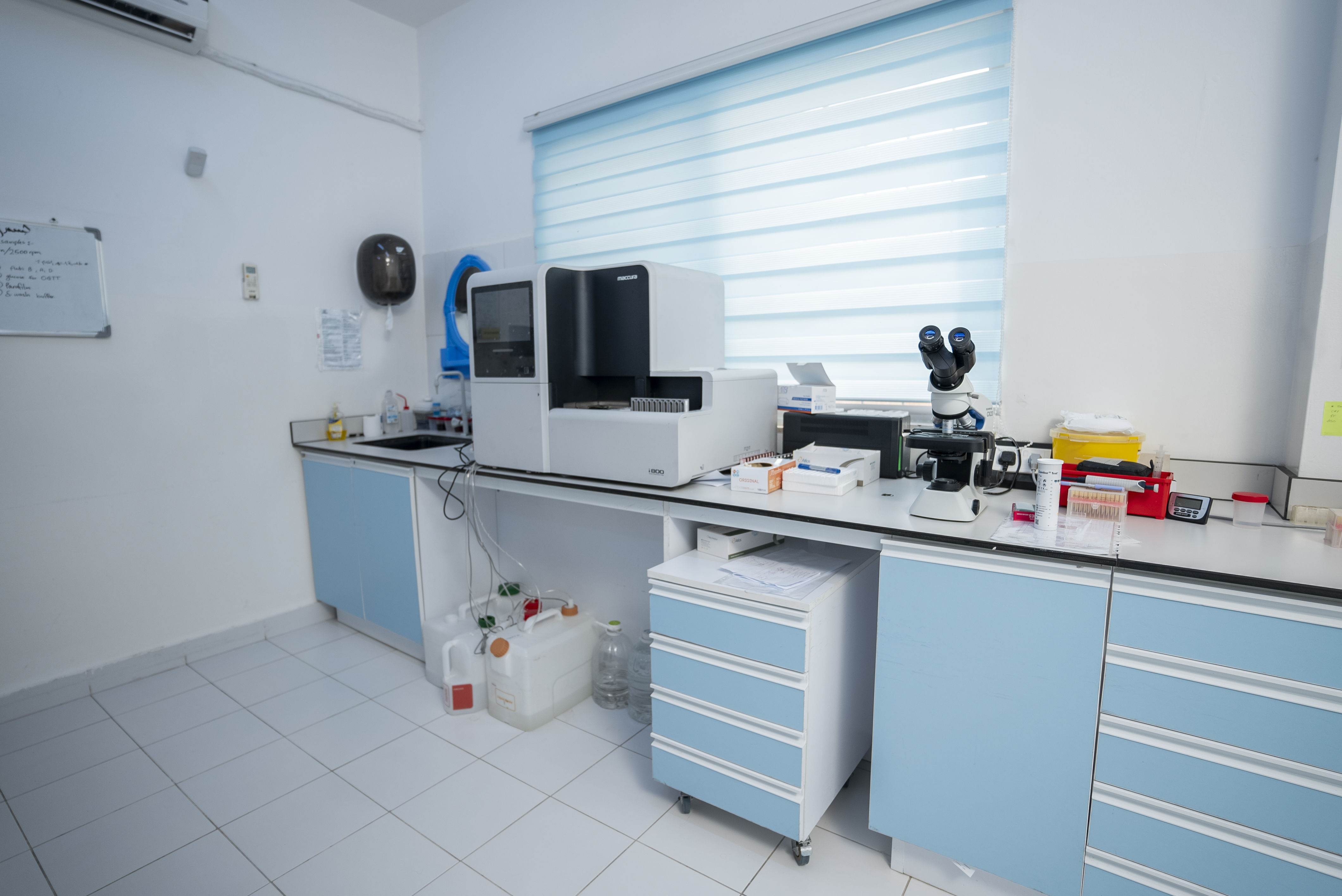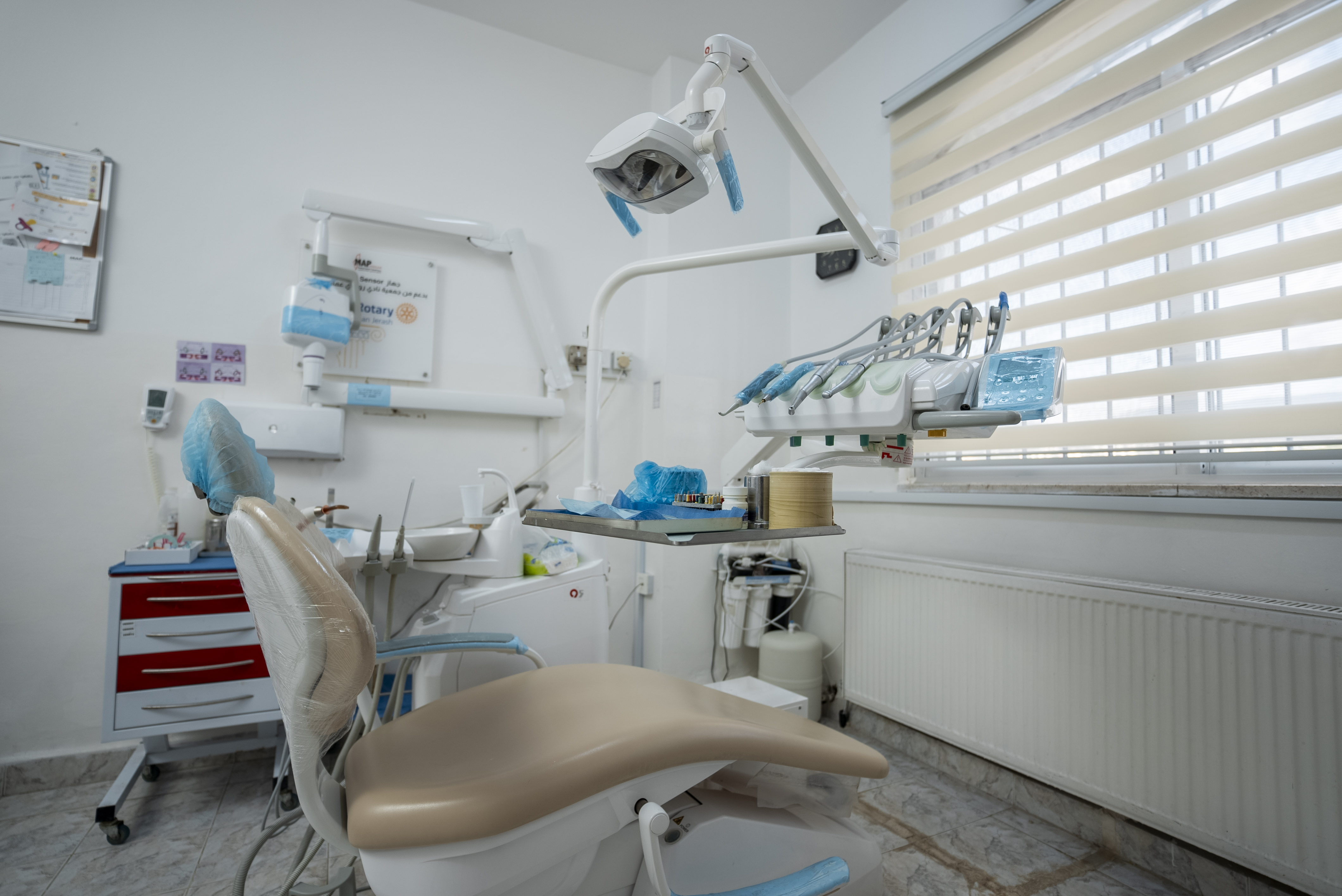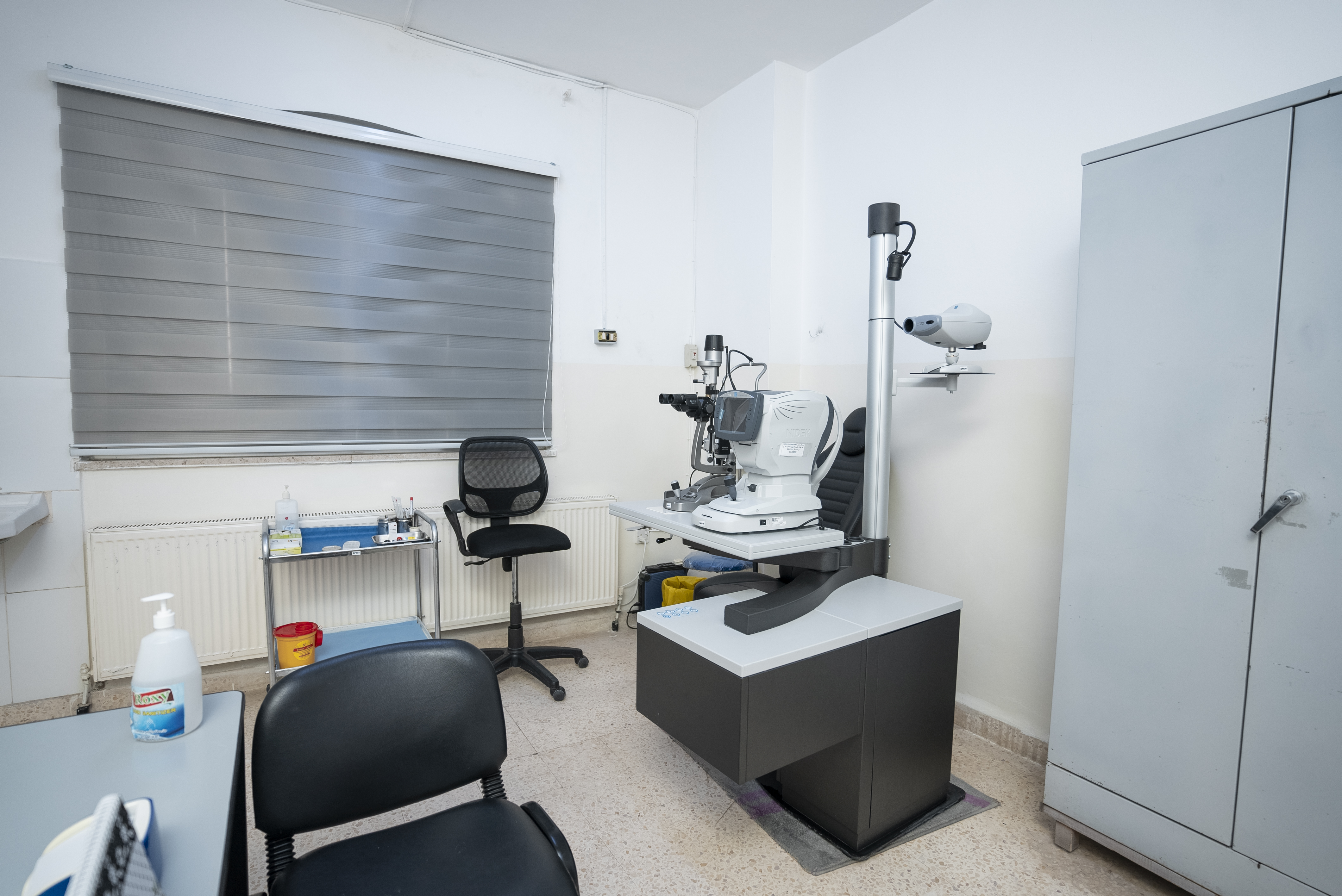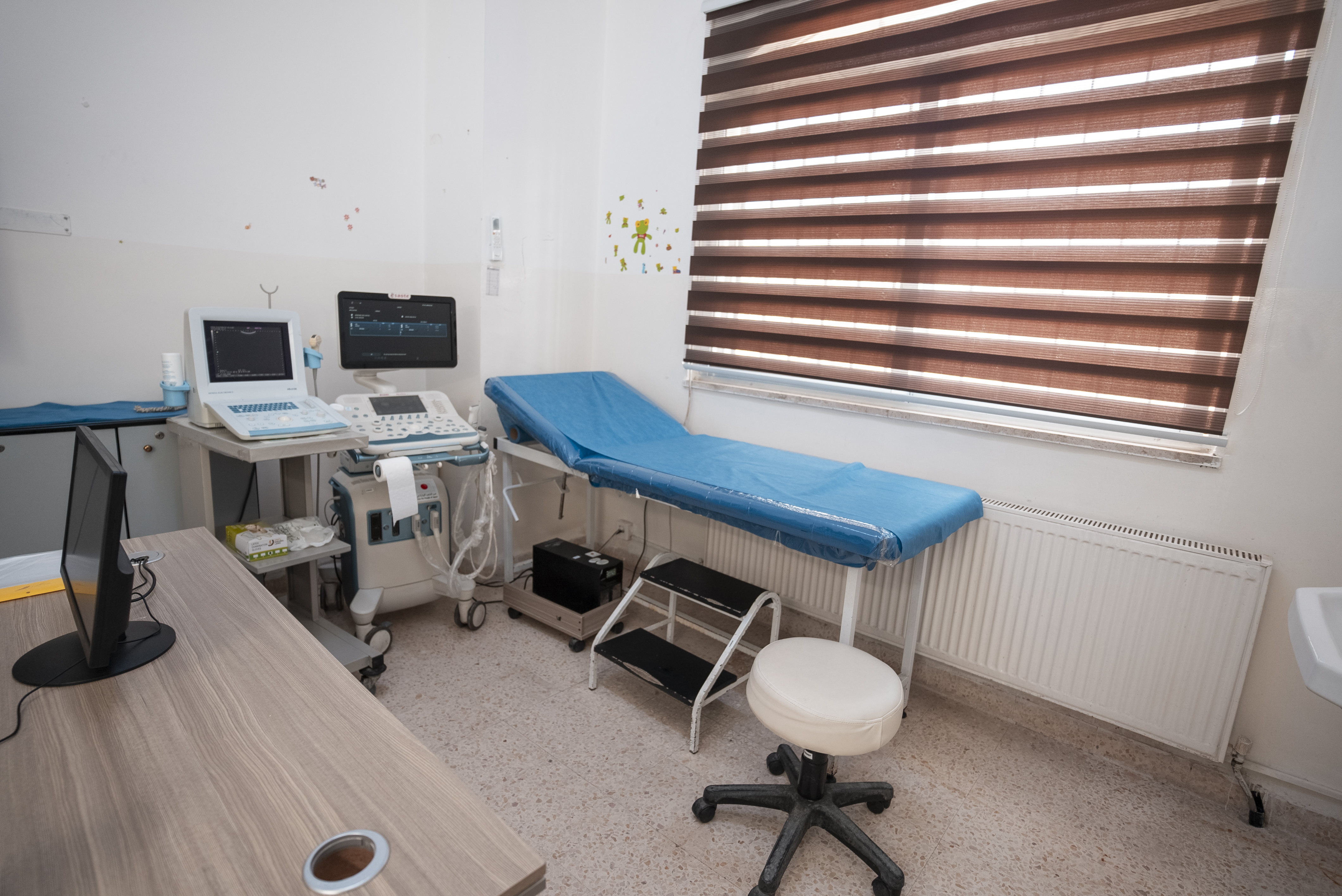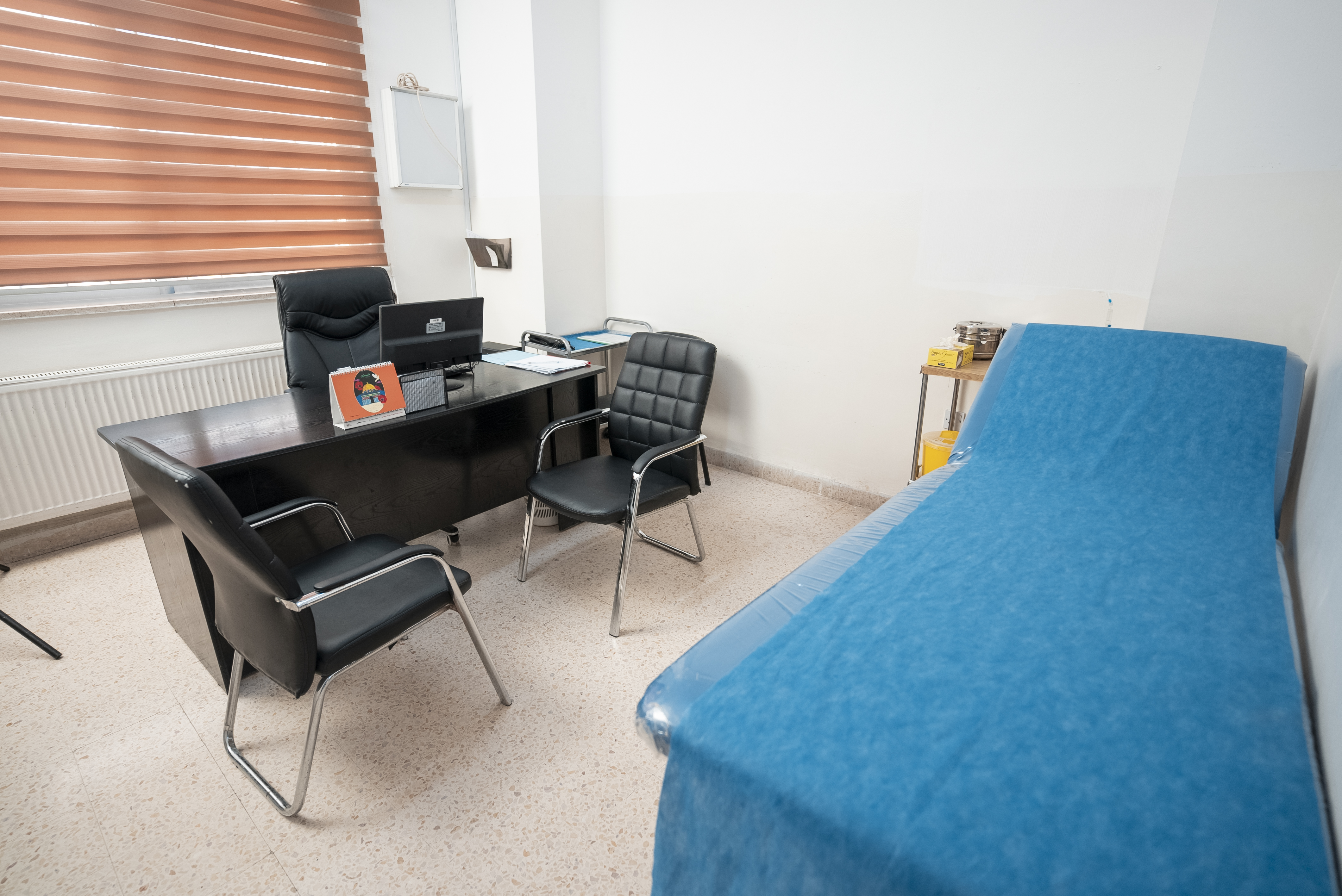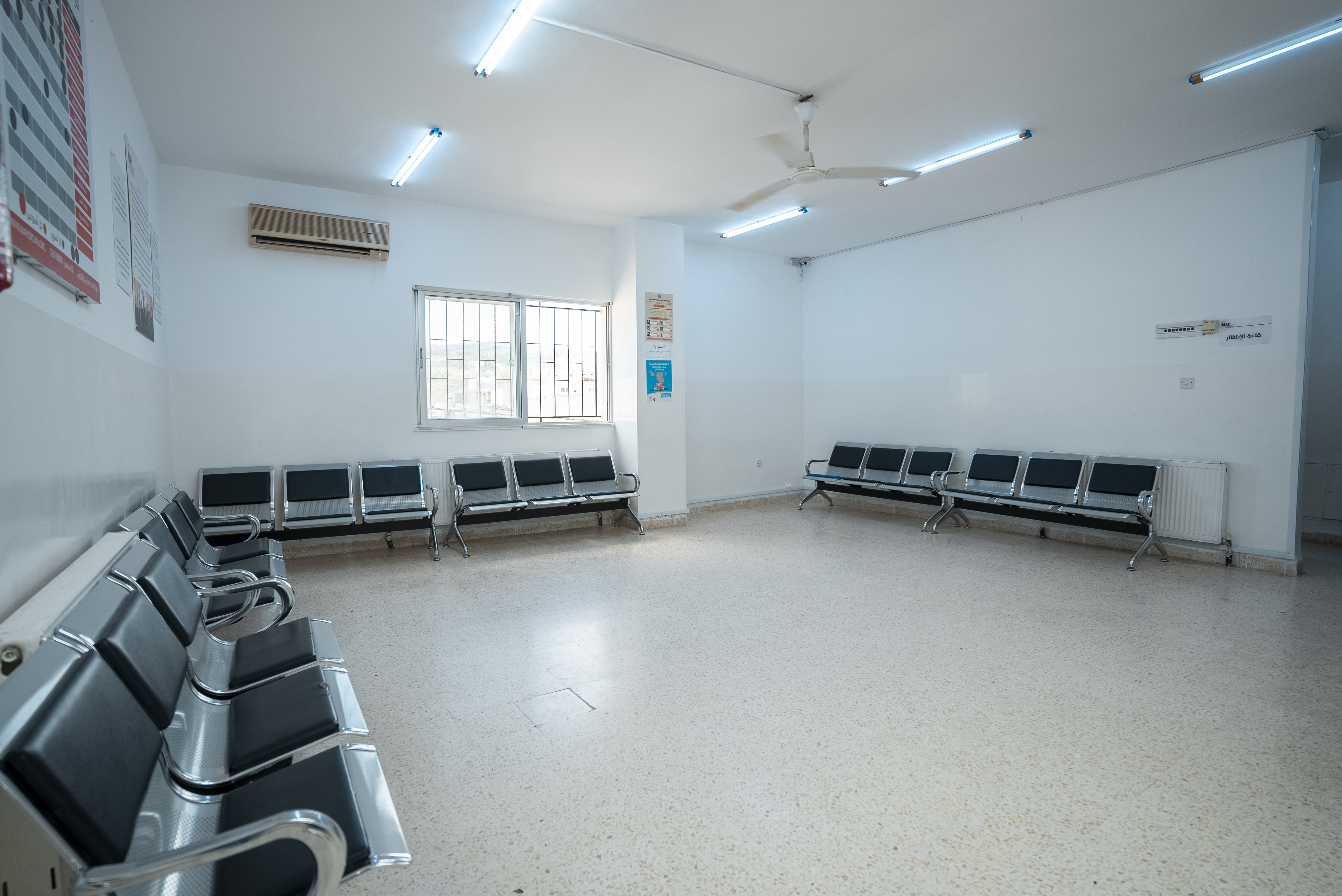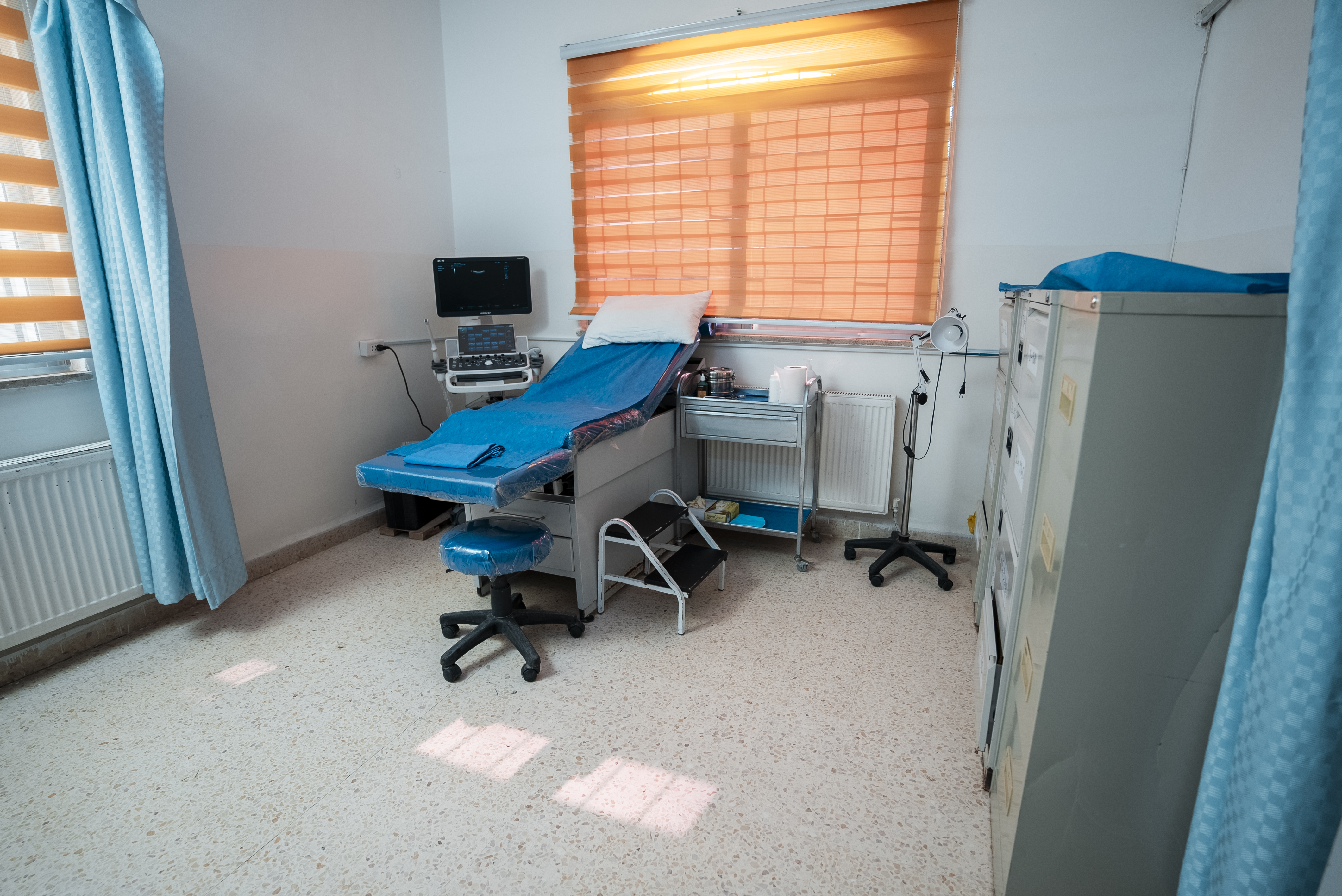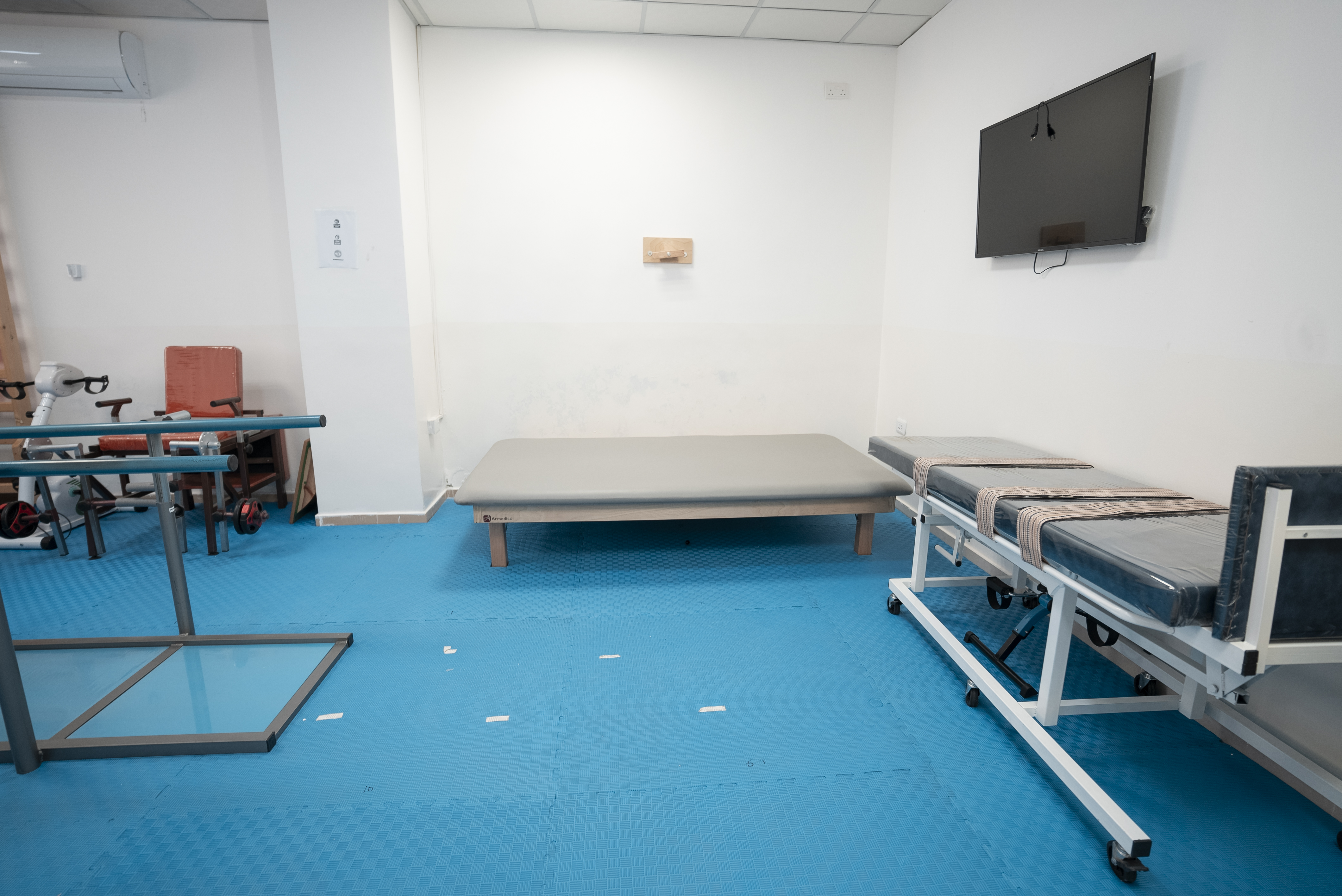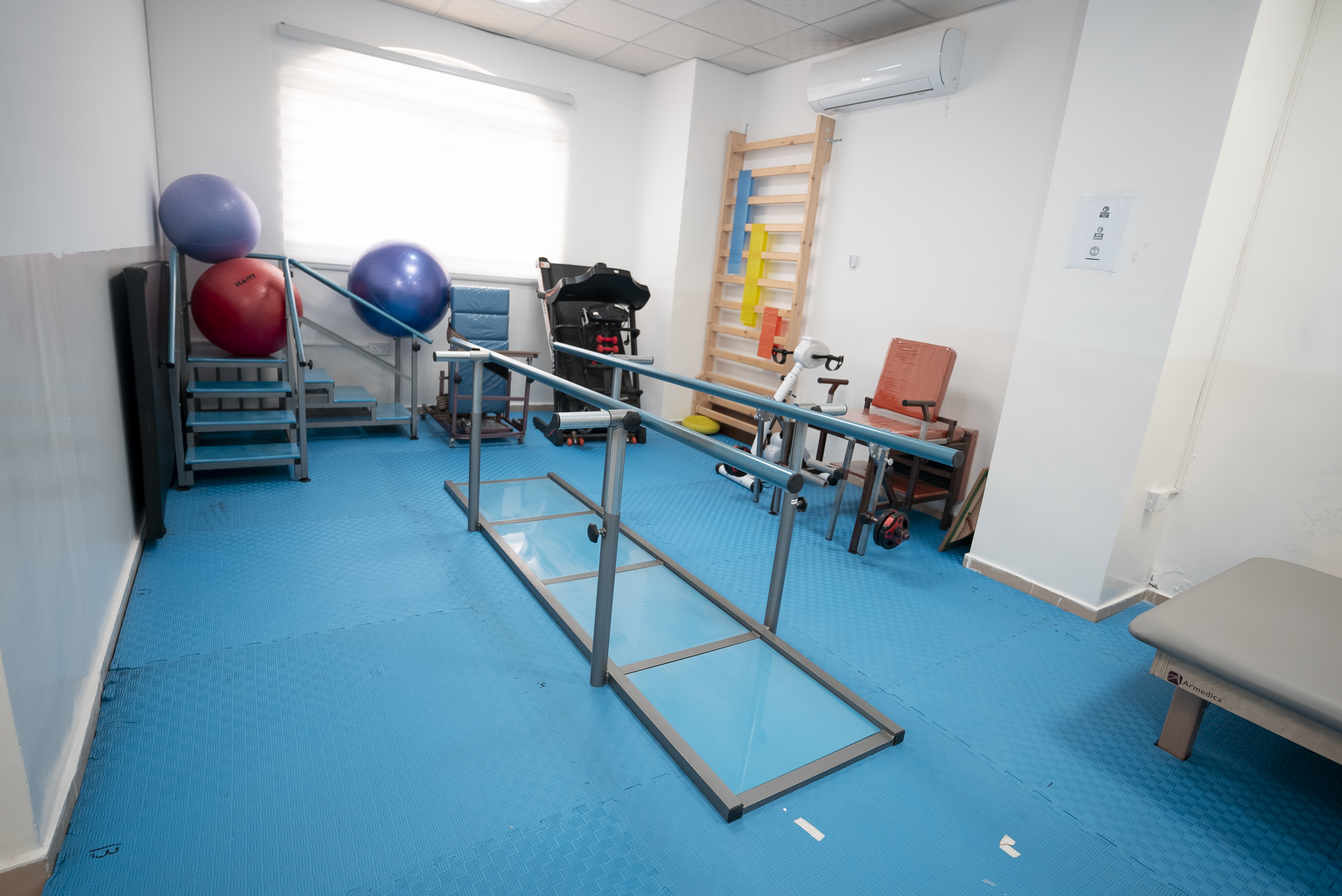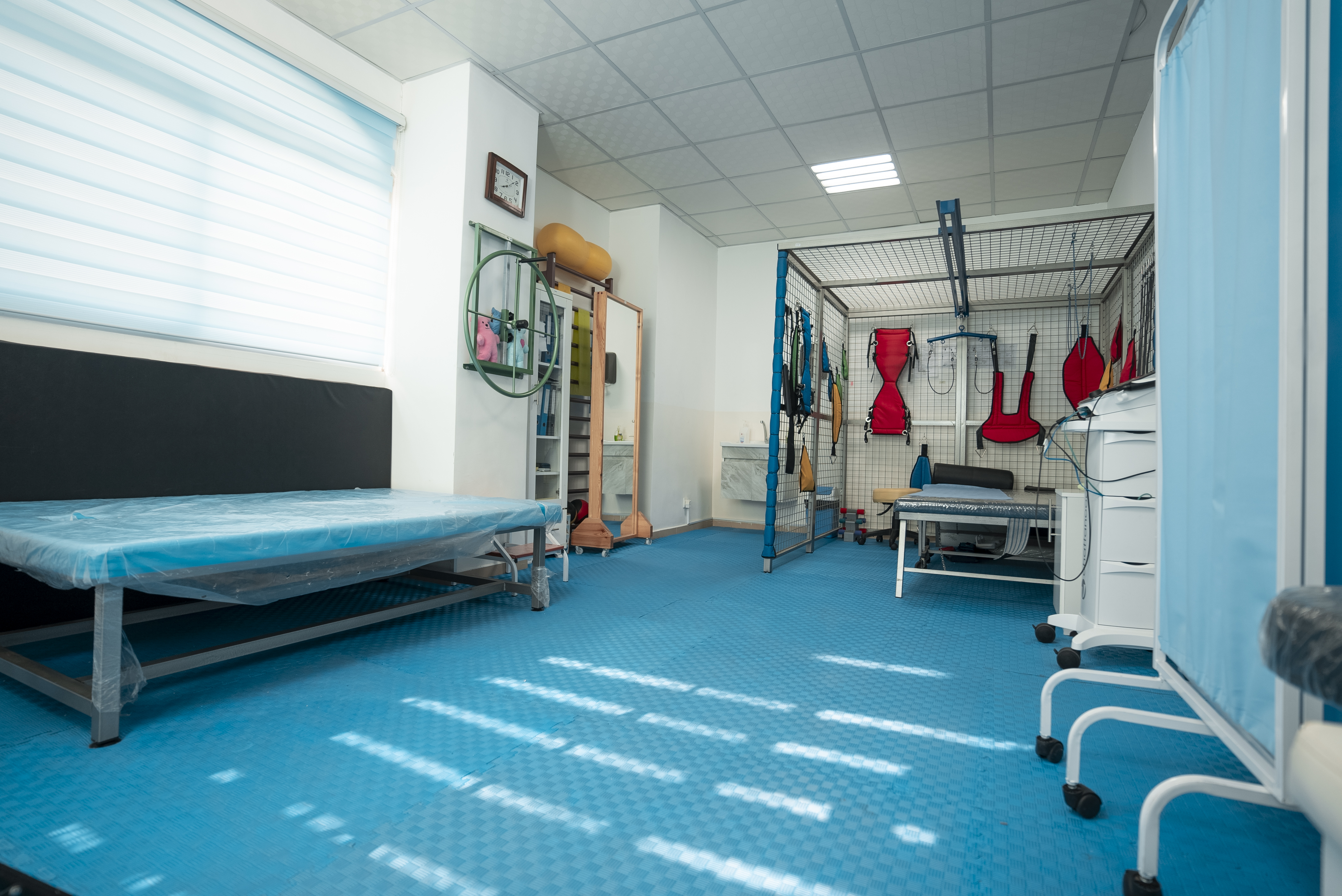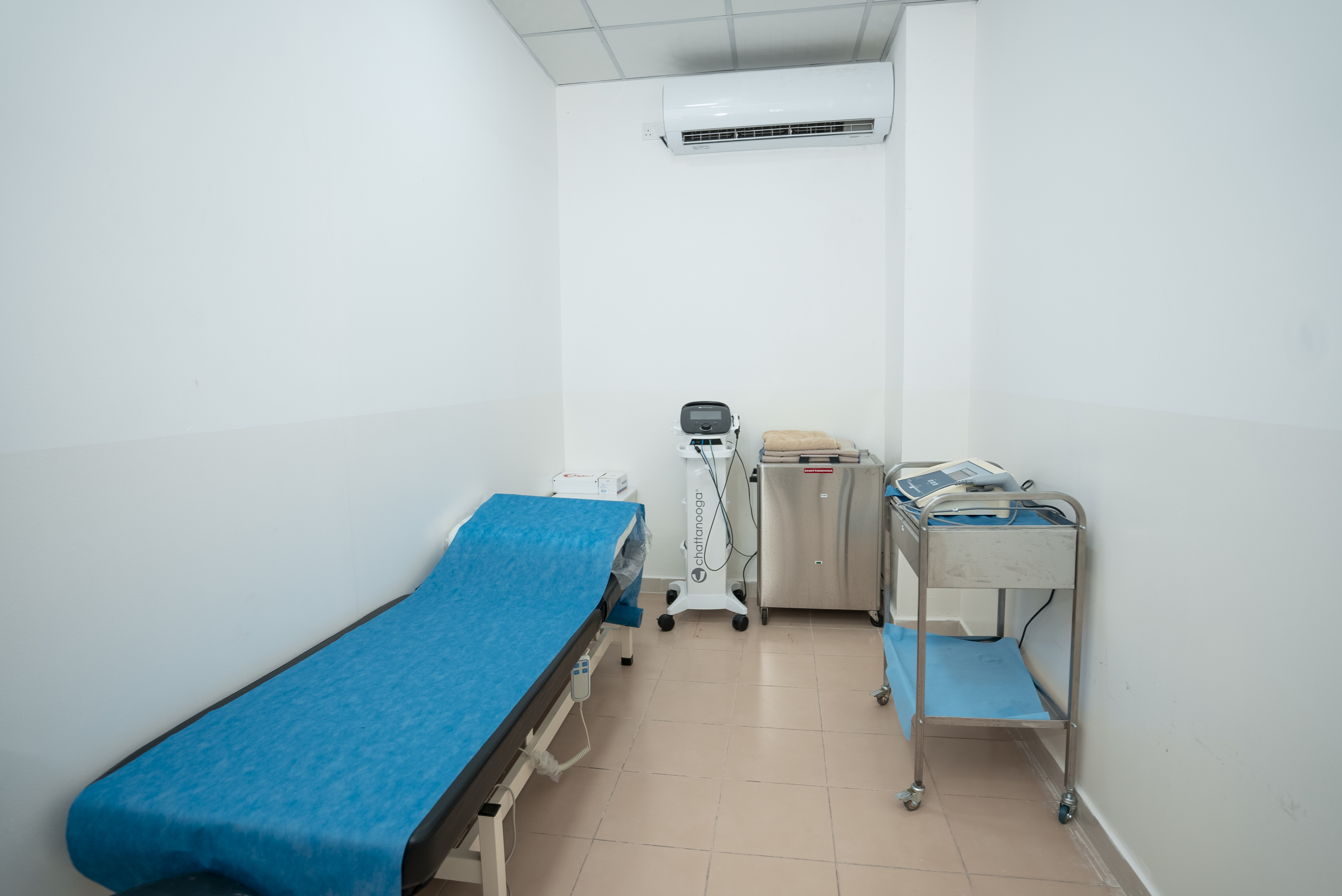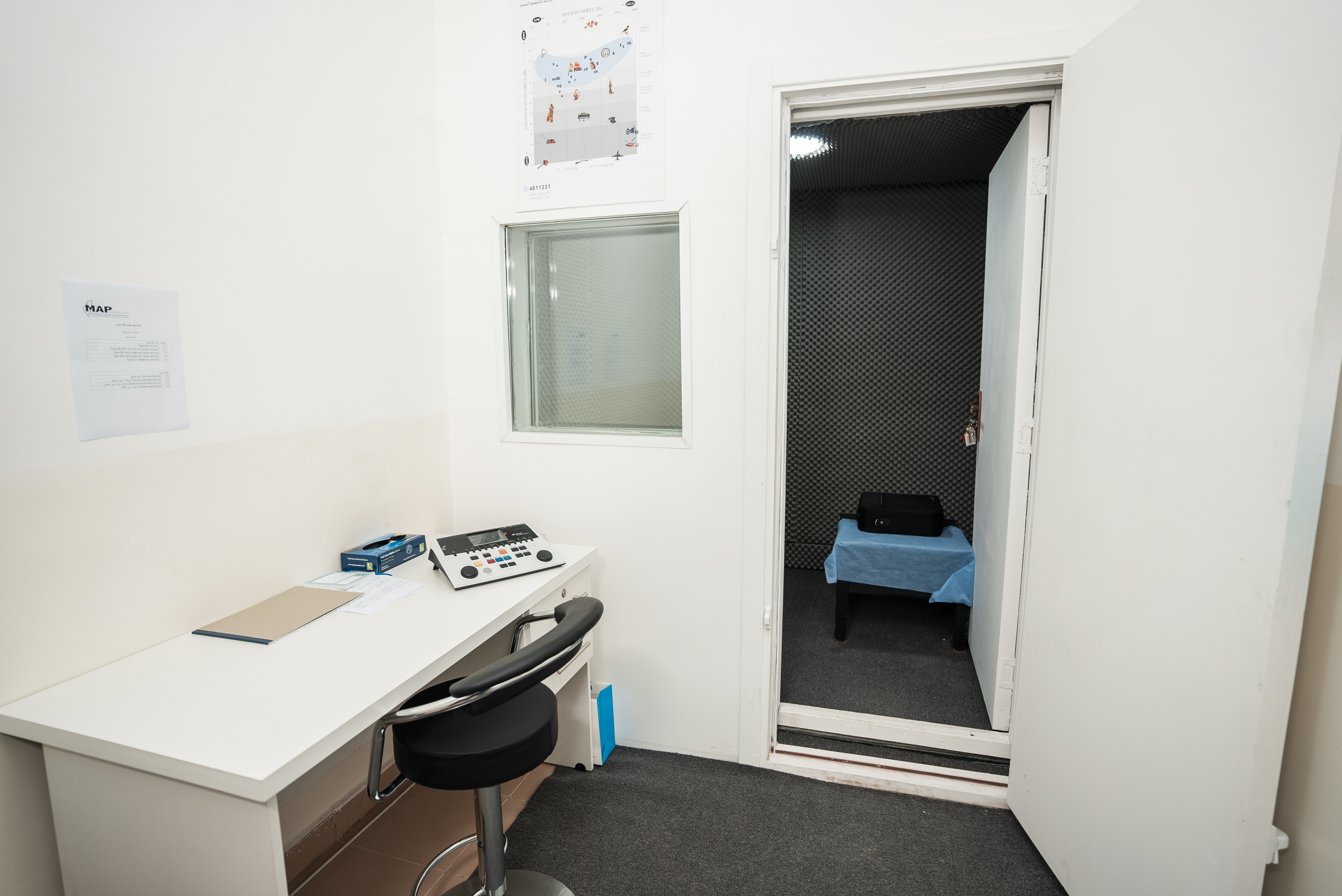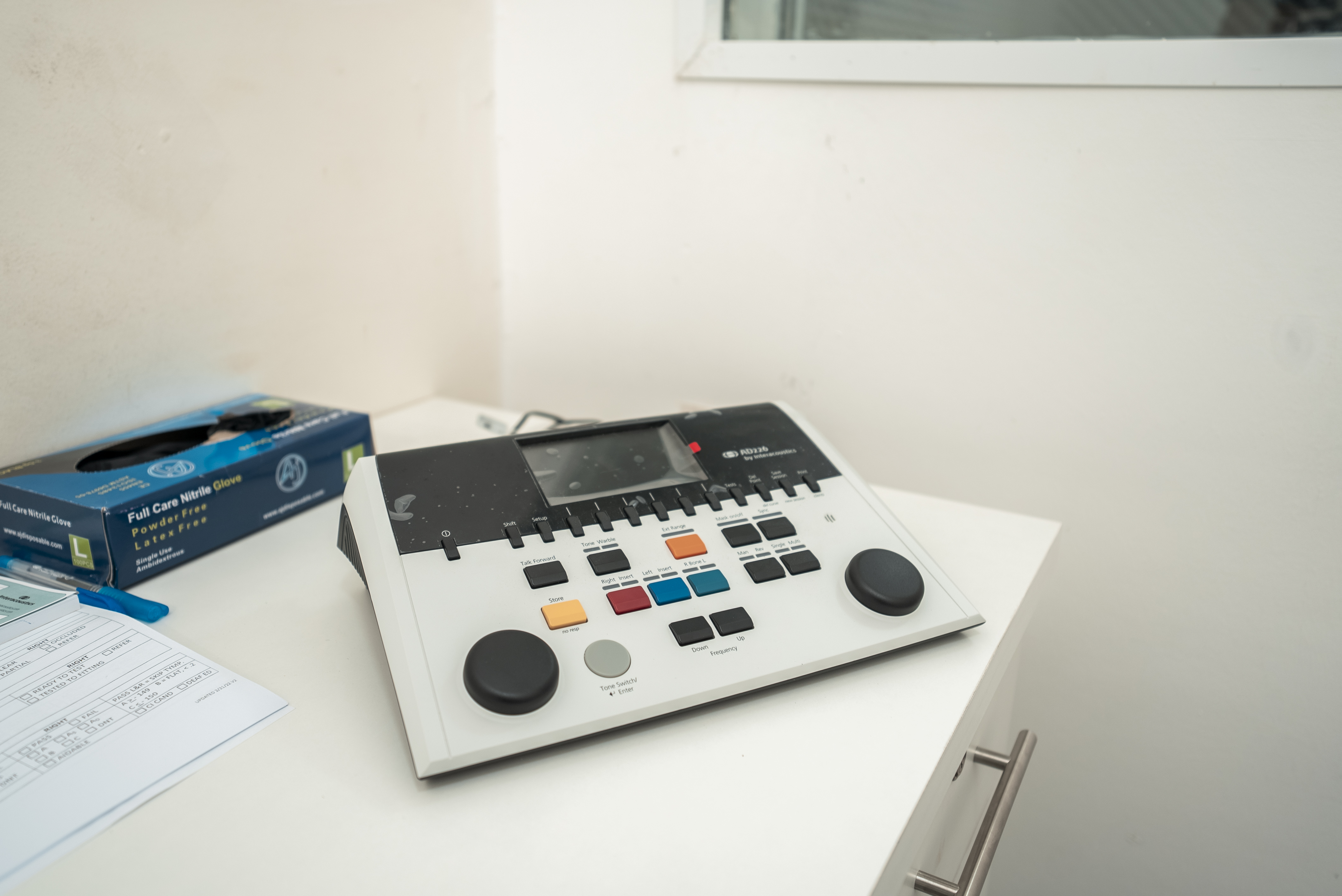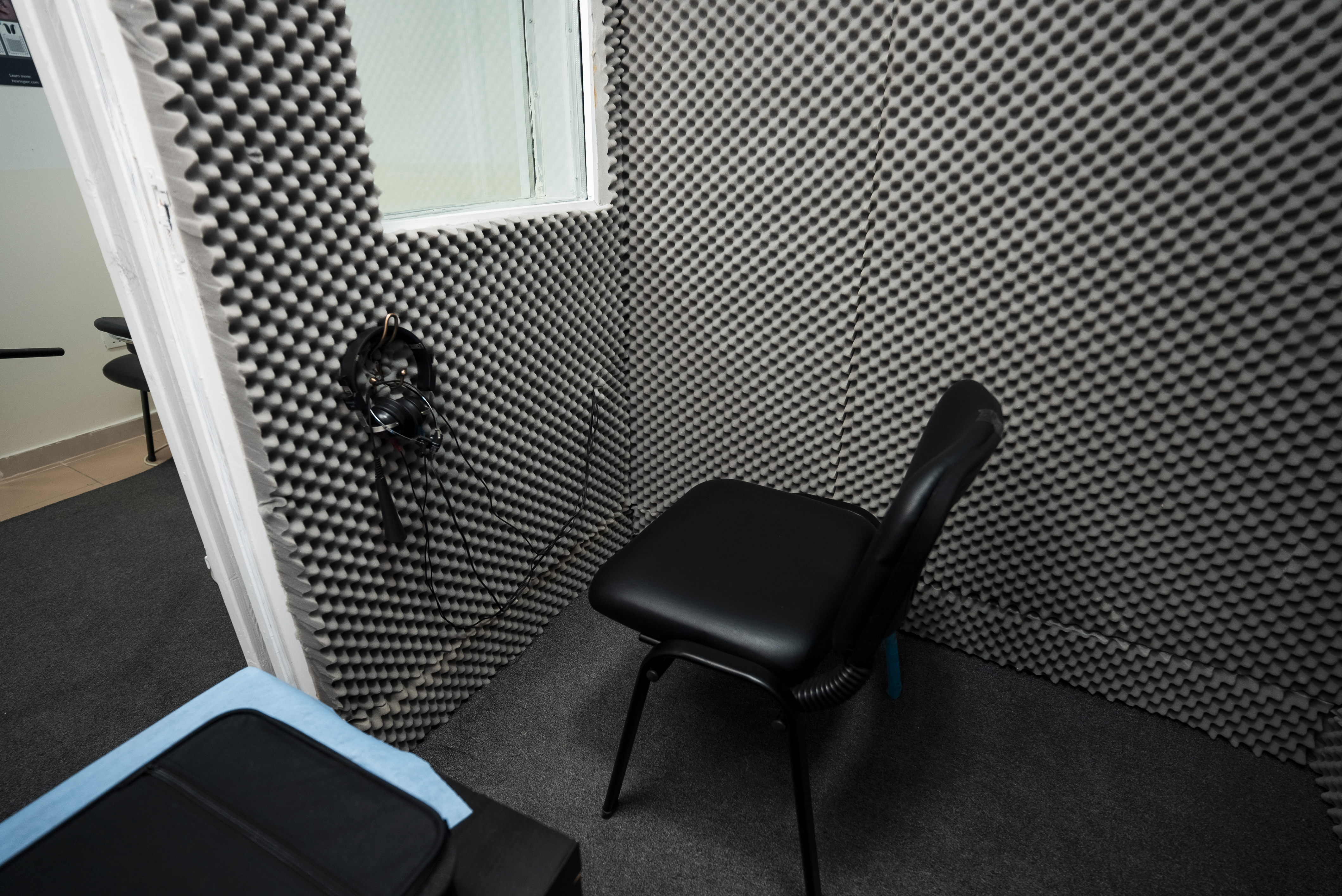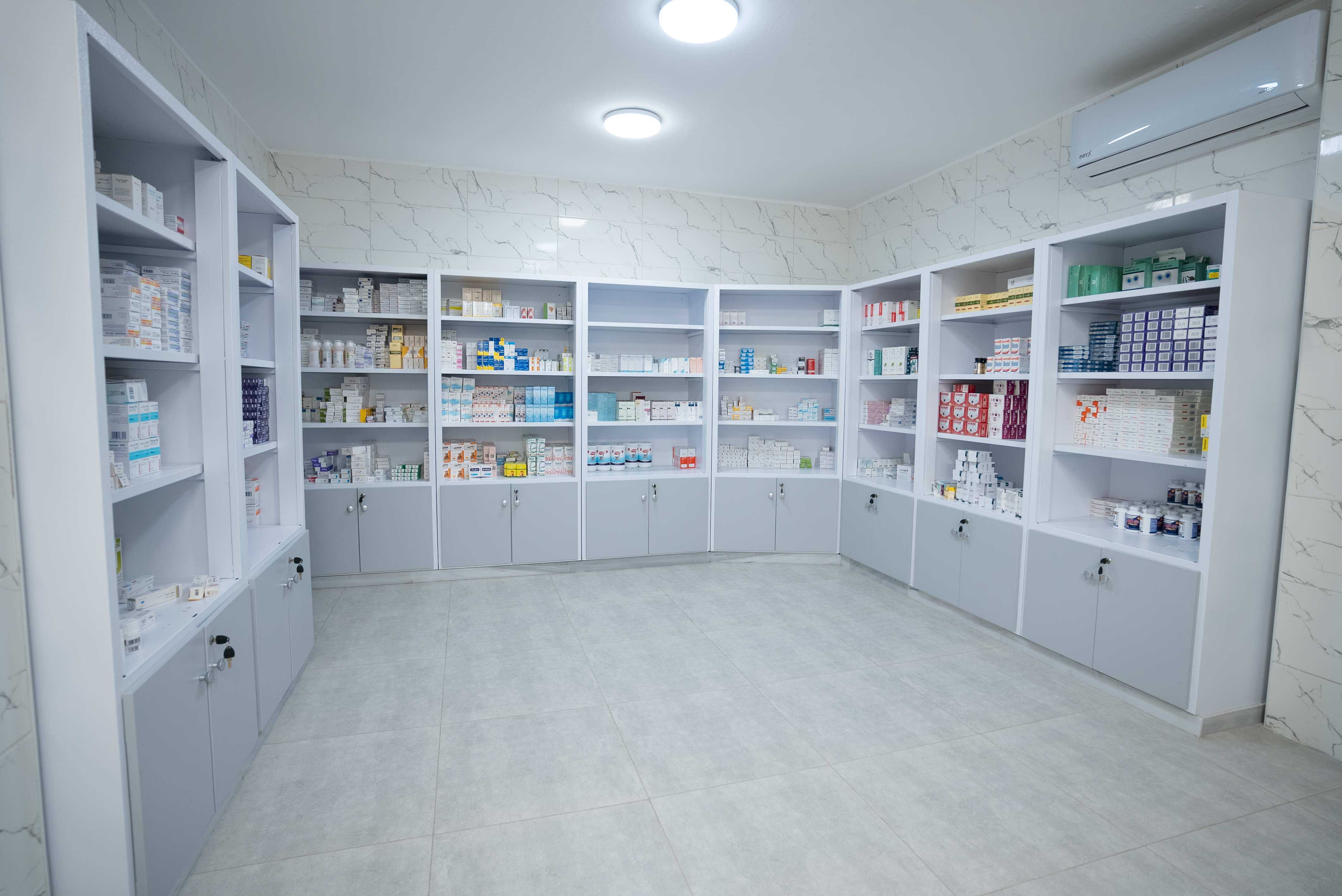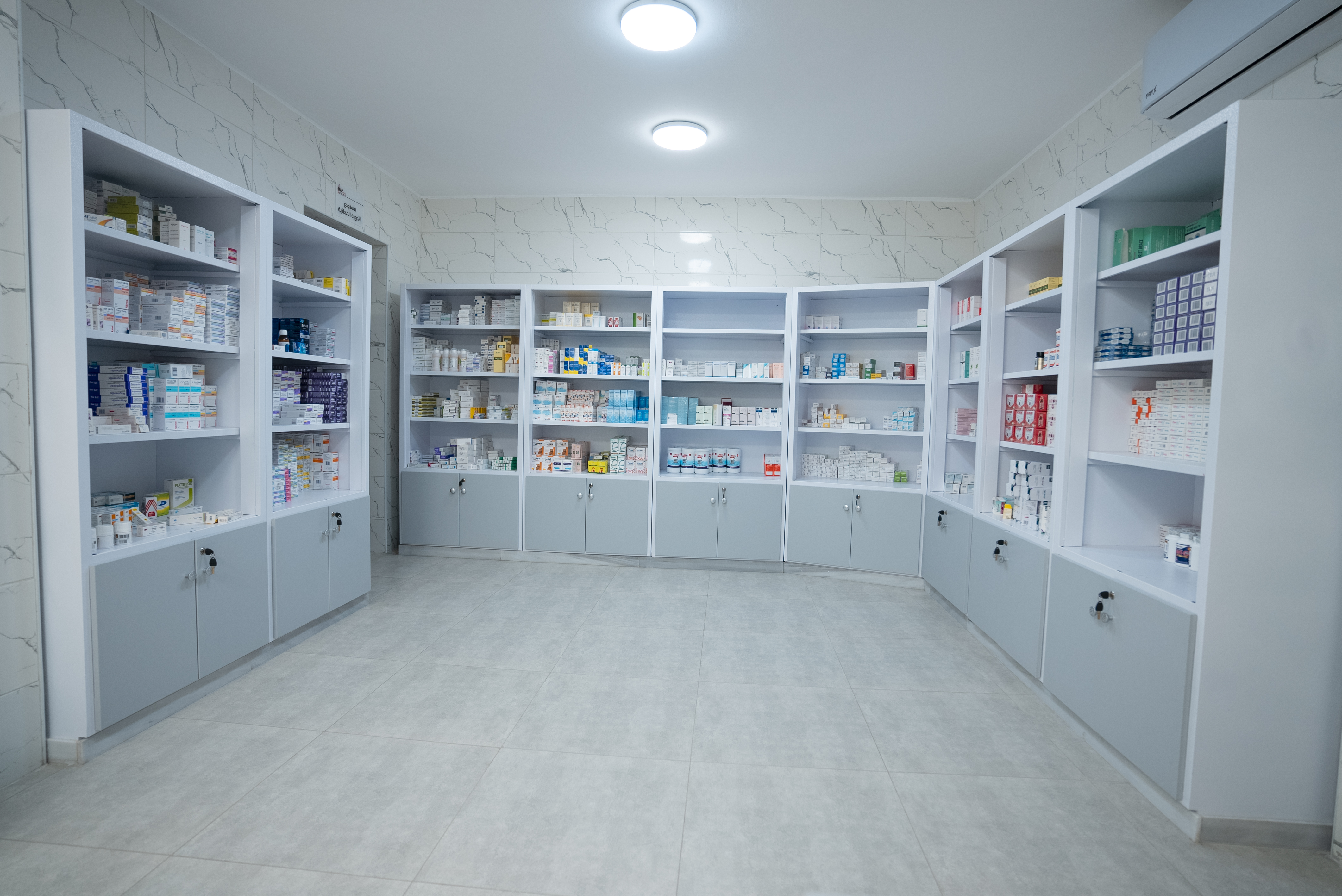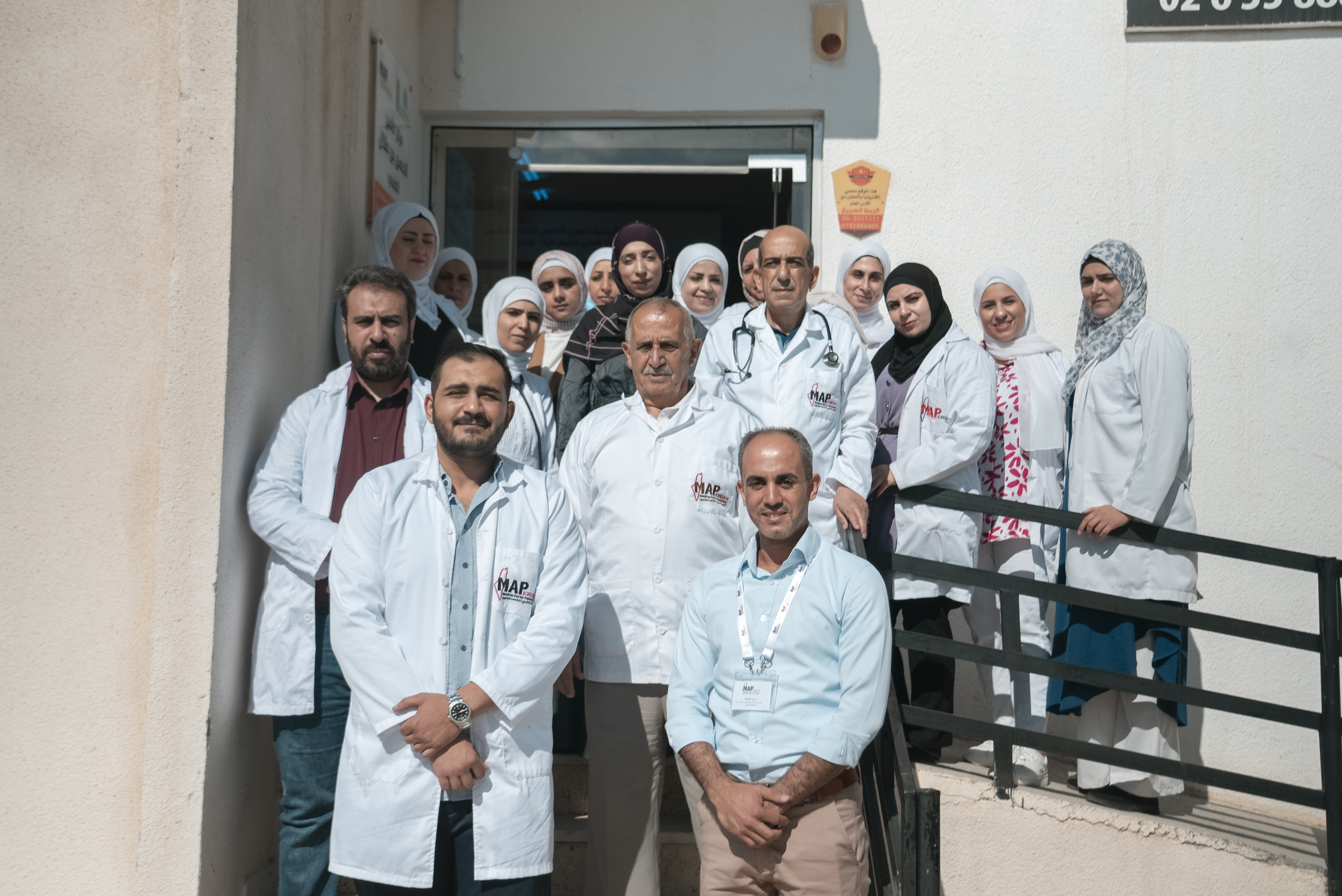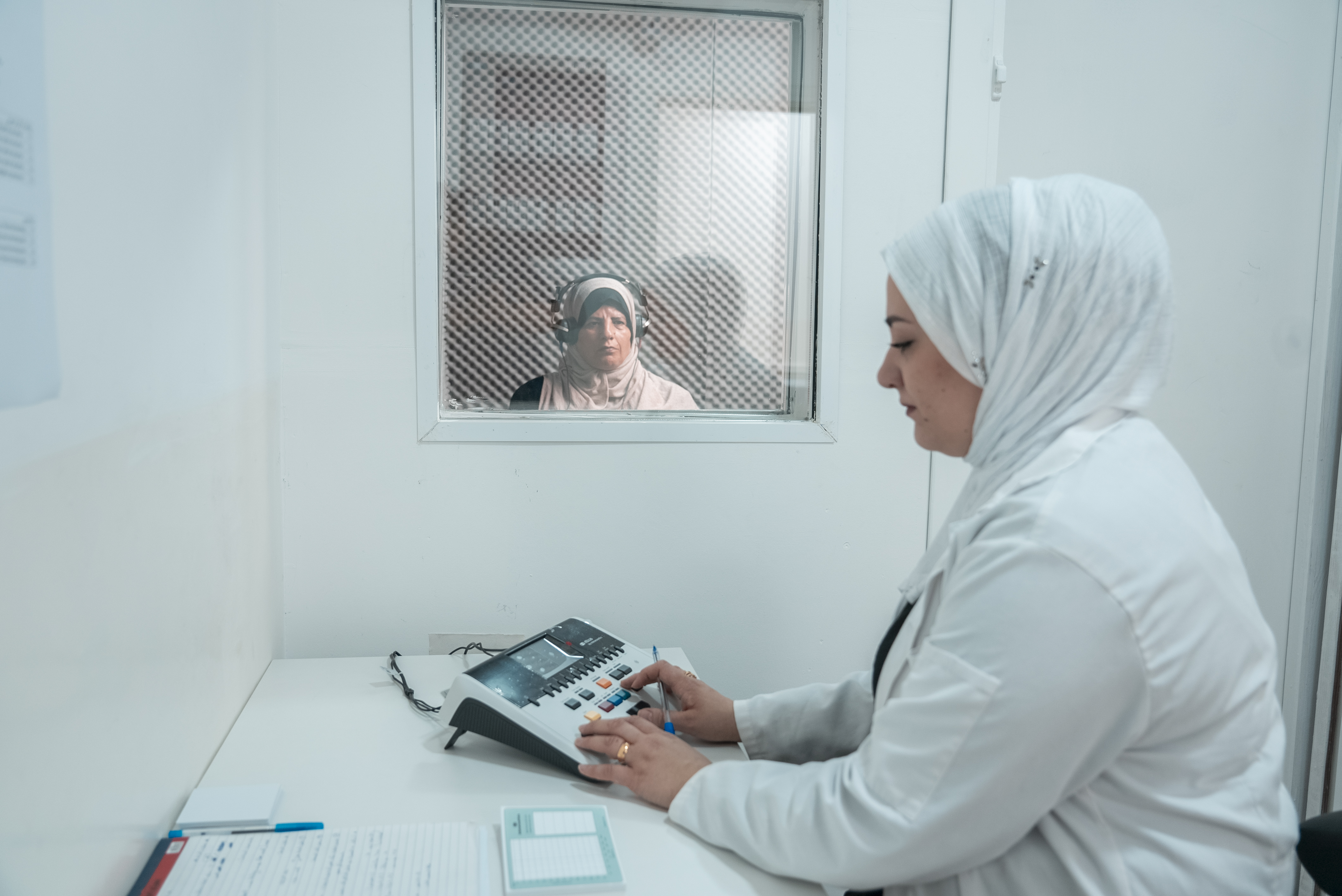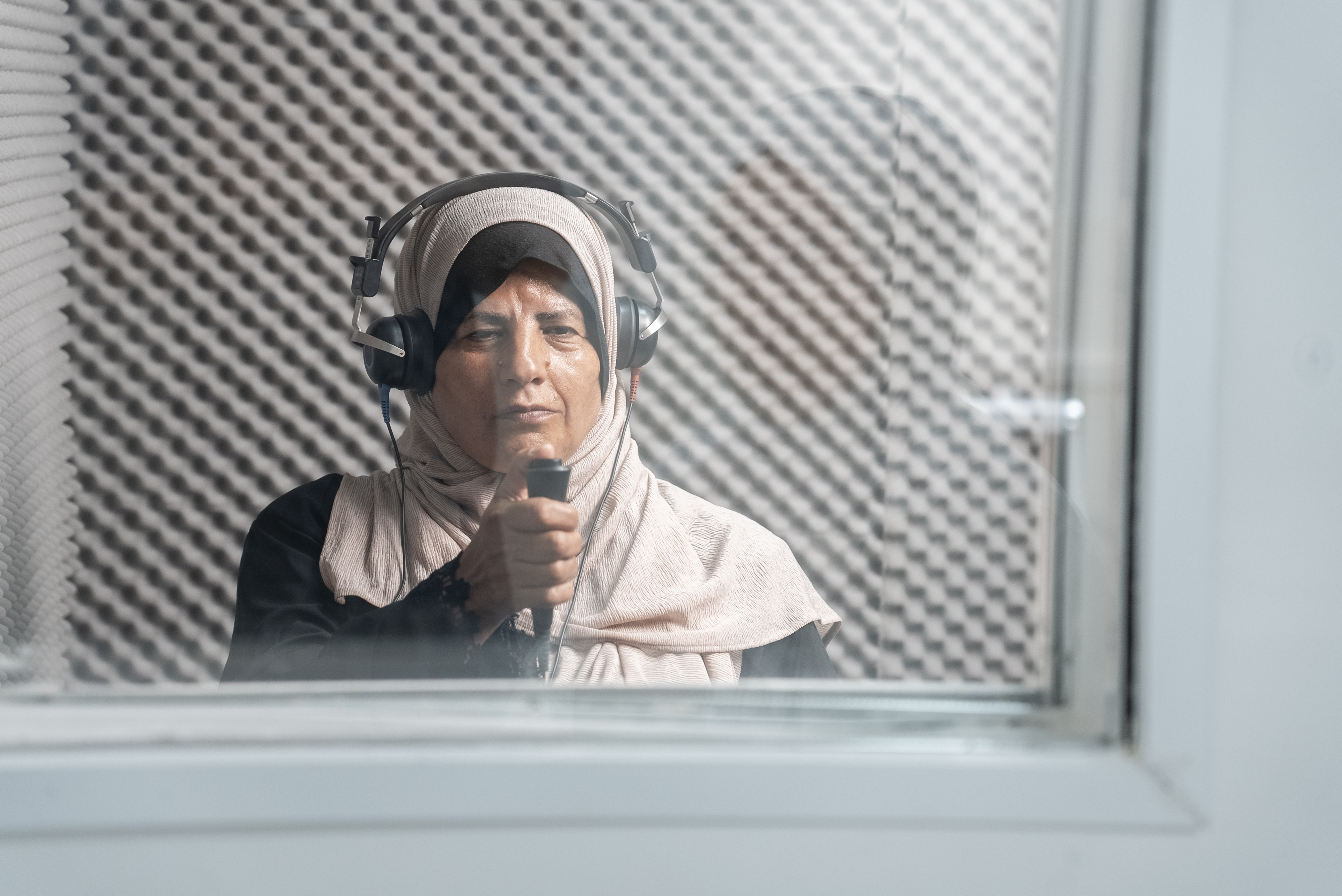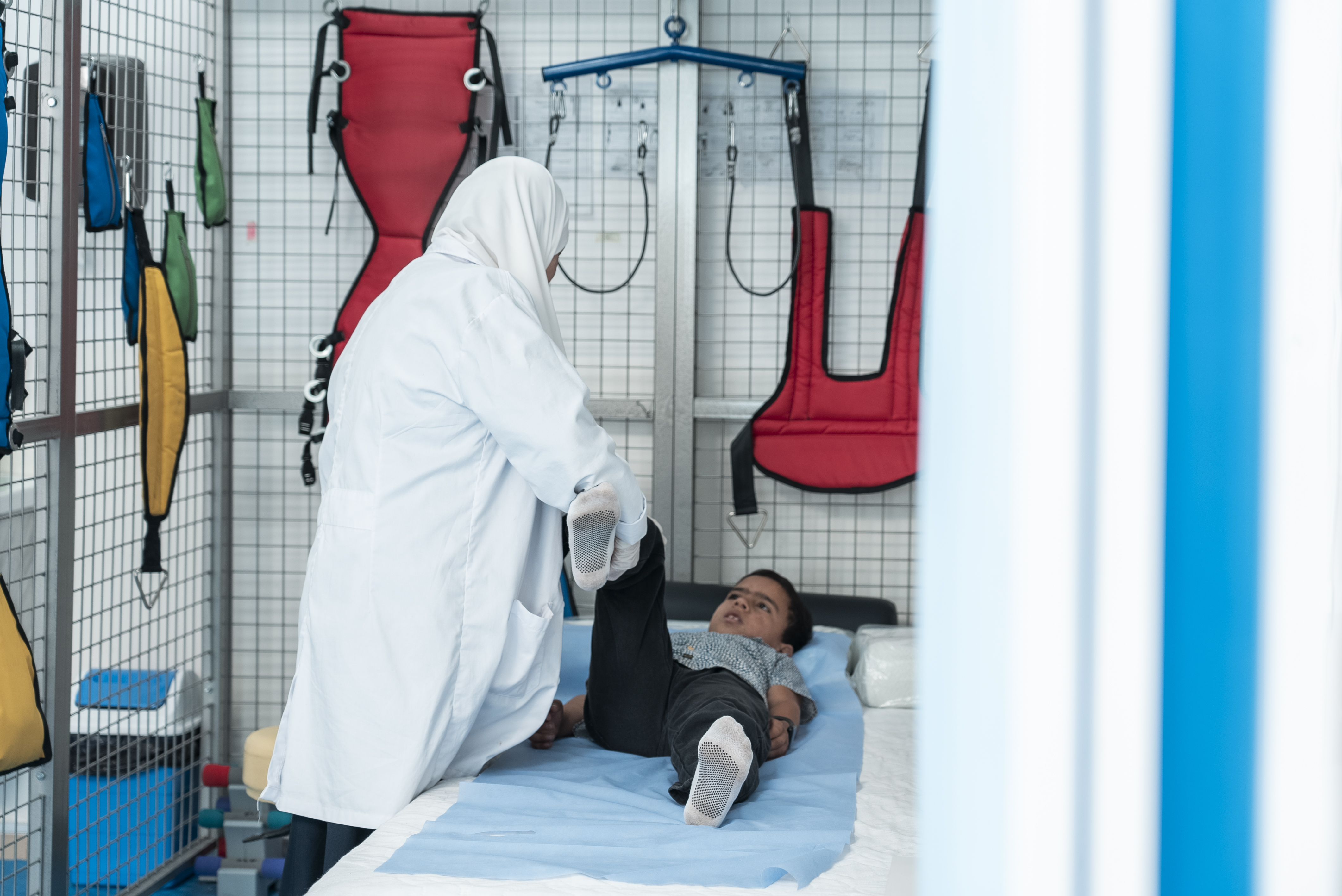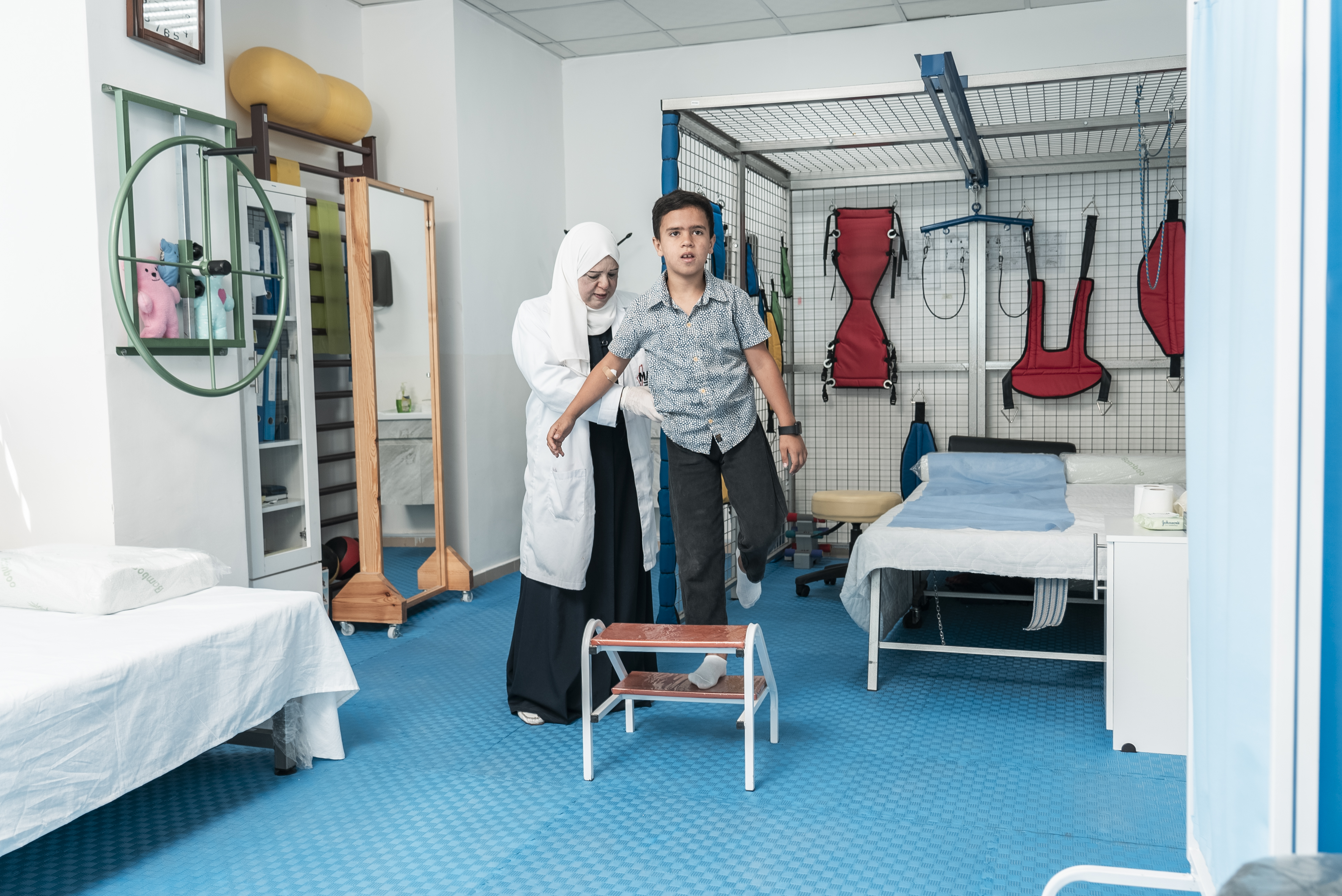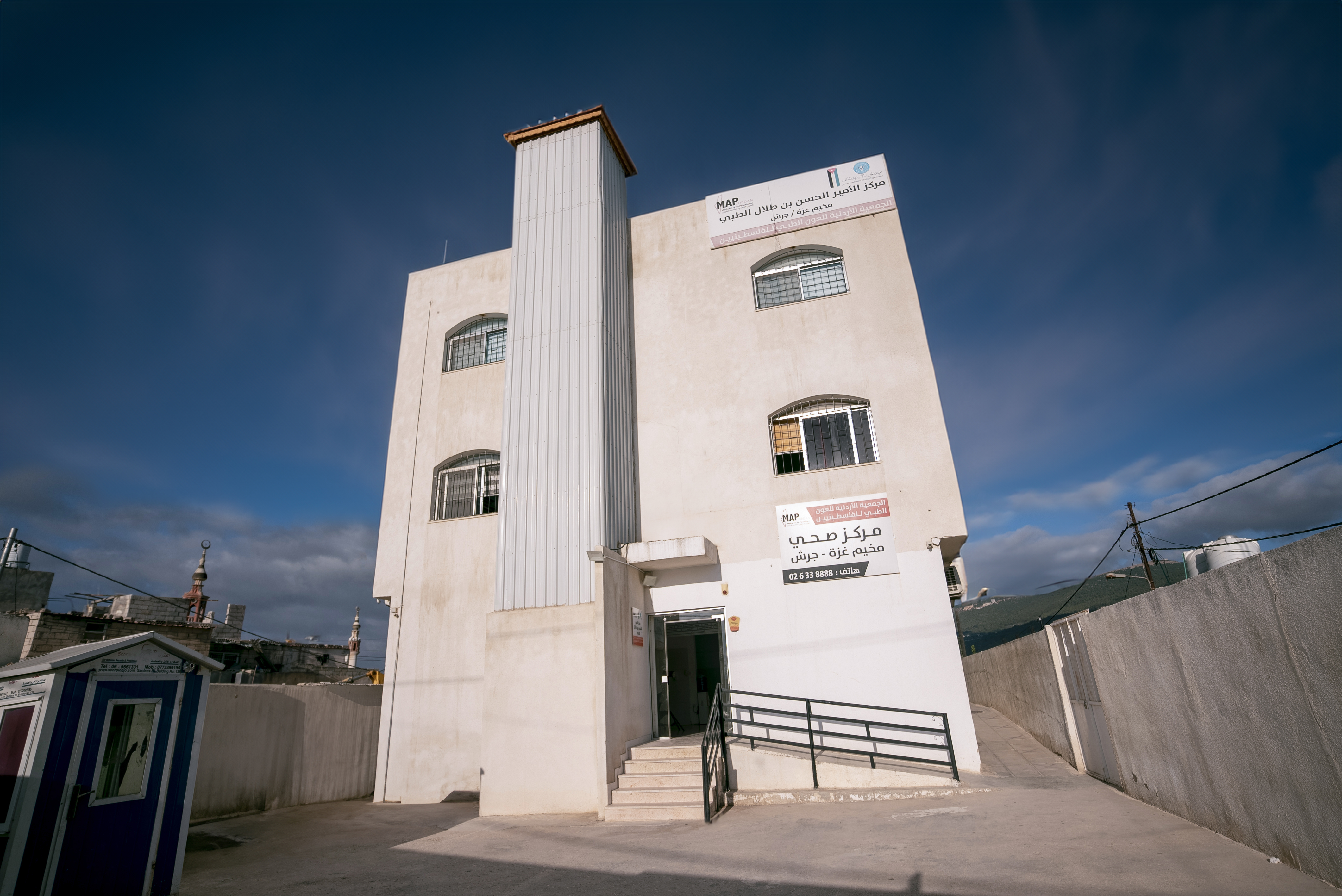Gaza Camp Medical Center - Jerash
Gaza Refugee Camp:
Is situated approximately 50 kilometers north of Amman and 7 kilometers from Jerash City, thereby falling under the administrative jurisdiction of Jerash Governorate. The camp was officially established in 1968 as an emergency camp for Gazans who fled during the Naksa. The camp was established by the United Nations Relief and Works Agency for Palestine Refugees (UNRWA) to provide immediate shelter and education to the 11,500 individuals who were forcibly displaced.
Currently, the camp spans over 750,000 Dunums and has over 45,000 residents. As aforementioned, the residents from the camp came from the Gaza Strip after 1967, and therefore, they are seen as displaced people rather than refugees, which consequently causes them to be stateless. Being stateless impacts their daily lives, since 88% of the residents of the camp have no health insurance. Therefore, many residents of the camp depend heavily on UNRWA for healthcare, resulting in overcrowded facilities and strained services.
Gaza Camp Medical Center:
Jordan Medical Aid for Palestinians (MAP Jordan) established the Gaza Camp Medical Center in the year 2000 to serve over 40,000 refugees who lack a Jordanian citizenship, limiting their employment opportunities and access to essential healthcare services. Since MAP Jordan recognizes the urgent need for both primary and specialized healthcare services, the medical center has become a vital pillar in supporting community health and well-being.
| Specialized clinics |
| Gynecology & Obstetrics |
| Pediatrics |
| Dentistry |
| Orthopedics |
| Ophthalmology |
| Dermatology |
| ENT (Ear, Nose, and Throat) |
| Cardiology & Vascular clinic |
| Internal Medicine & Endocrinology clinic |
| Complementary services |
| Radiology Lab |
| Physical Therapy Unit |
| Audiometry Unit |
| Medical Laboratory |
| Pharmacy |
| Community Center |
The Gaza Camp Medical Center operates with a dedicated team of skilled medical and nursing staff who work tirelessly each day to serve thousands of patients across the camp. The medical center remains a critical lifeline for the community, embodying the values of solidarity, resilience, and humanitarian commitment. Providing essential access to healthcare that residents would otherwise be unable to afford or obtain, ensuring their most basic needs are met.
MAP Jordan always aims to expand its support for the medical health center in the Gaza Camp, which consequently is a direct investment in human dignity and the fundamental right to healthcare, offering a powerful opportunity to help build a healthier and more equitable future for current and future generations in the camp.
Since the founding of the Jerash Gaza Camp Medical Center till mid-2024, the center has received more than 249,871 patient visits, and the Medical Center has healed 40,399 patients within 2024, meaning 3,362 patients per month on average. Therefore, MAP Jordan gives the best care possible to everyone in the Jerash Gaza Camp, but especially to the 88% who do not have health insurance, and thus ensures that the patients can obtain the best of care as well.
However, the Gaza Camp still has many current troubles going on, which influence the health of the residents:
Current Troubles Causing Health Concerns:
- The infrastructure in the Gaza Camp is severely inadequate, leading to widespread chronic health problems.
- Overpopulation within the camp forces residents to live in overcrowded and densely packed conditions. The camp is known to have the lowest median per capita square meters of living space. This causes many households to have multiple family members sleeping in the same room, which contributes to poor sanitation.
- Limited access to clean water: tanks are refilled only once a month, which is far from sufficient for the camp’s needs, and results in even greater sanitation challenges.
- 65% of the roofs in the Gaza Camp are still constructed of rusted asbestos sheets and corrugated zinc, which leads to extreme diseases such as cancer. However, these materials also lead to poor isolation, and therefore, it becomes extremely cold in the winter and extremely hot in the summer.
- 52.7% of the residents within the Gaza Camp have an income below the national poverty line, and therefore, many resources are too expensive for them, such as diesel, gas, or electric heating.
The Community Center:
The mental health of the residents of the Gaza Camp has been deteriorating significantly, and since October 7th, 2023, a new wave of depression and insomnia has occurred. These are caused by the stress of seeing the destruction of their homeland, which, for the entire camp, is hard to watch, and thus, a psychological warfare has been happening within the camp. Furthermore, for many, they still have their family members in Gaza.
Poor mental health was already a growing concern within the camp, but as aforementioned, it has become worse. A study by Dr Omar Gammoh, stated that 73% of the women in the camp deal with depression, 60% deal with anxiety, and 65% deal with insomnia.
Jordan Medical Aid for Palestinians (MAP Jordan) opened a community center in 2024 to provide psycho-social services and work with residents of the camp on their mental health. The center aims to provide a venue where community members can gather and participate in educational activities. Hence, it becomes a place for learning, seeking counselling, and accessing support services. The community center is currently thriving and providing a comprehensive community space supporting health, education, and social development but is also used where residents come in and just have a quick chat about their current problems.
The community center’s current programs:
- “I love reading” which promotes literacy and fosters a reading culture among children.
- “One Heart” an initiative that supports the mental health of 51 families stranded from Gaza.
- “Space of Hope” which is a project to enhance mental health among family members.
- “Renewing Hope” a project to revitalise the camp through tree planting, cleaning campaigns.
Alongside these important developments, in 2025, a Capacity Building and Training Hall will be launched to equip refugees with practical skills for their future, but also help them better understand their own bodies and health. The training hall will also welcome handicraft weaving where Palestinian women create embroidered traditional textiles, which they could potentially sell. The Community Center will continue to provide a venue where community members can gather, participate in educational activities, to learn, and seek counselling and support services.
Contact & Location
Phone: 028338888
Location: Jerash Camp, Jerash Governorate, Jordan
 عربي
عربي